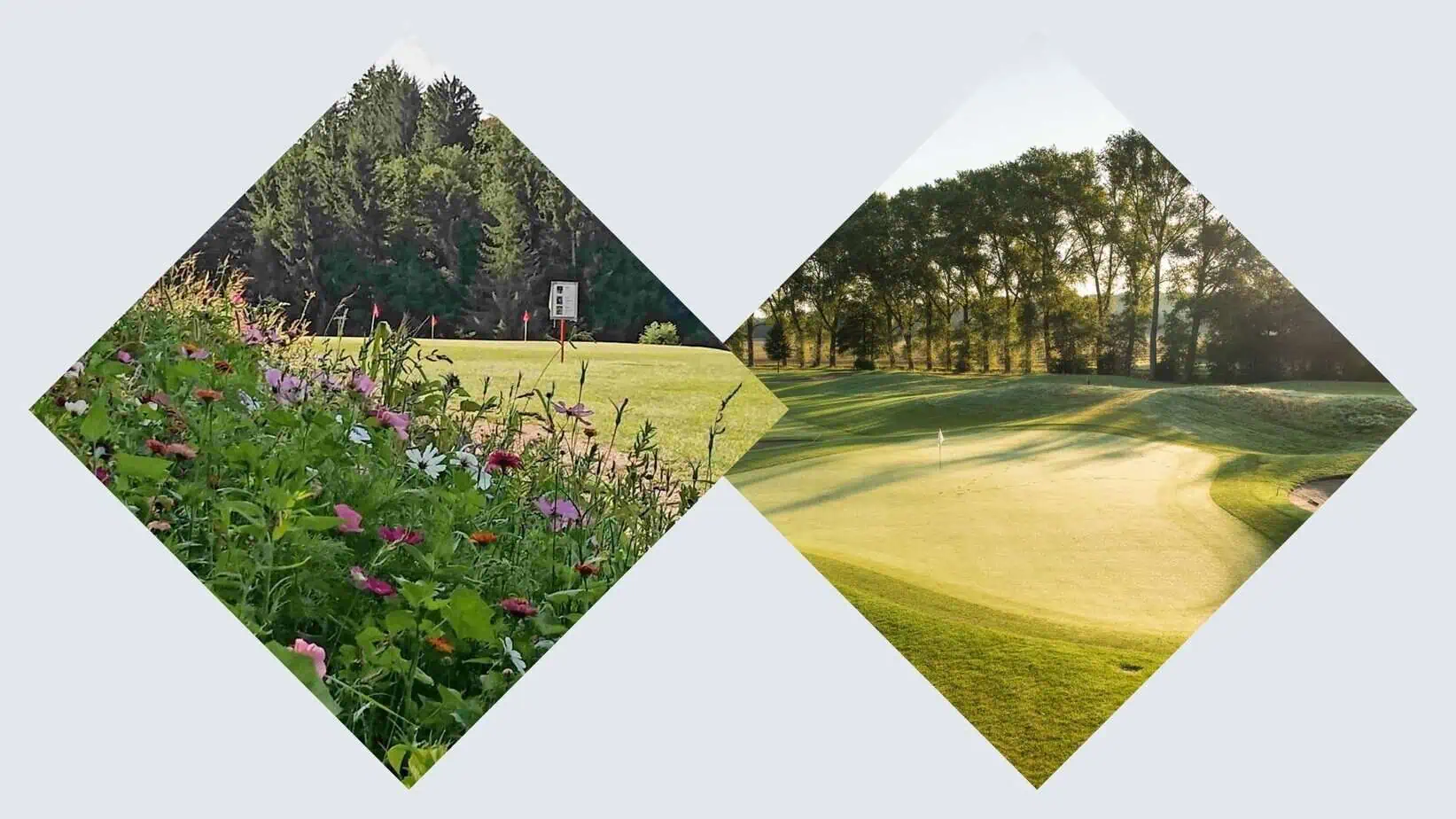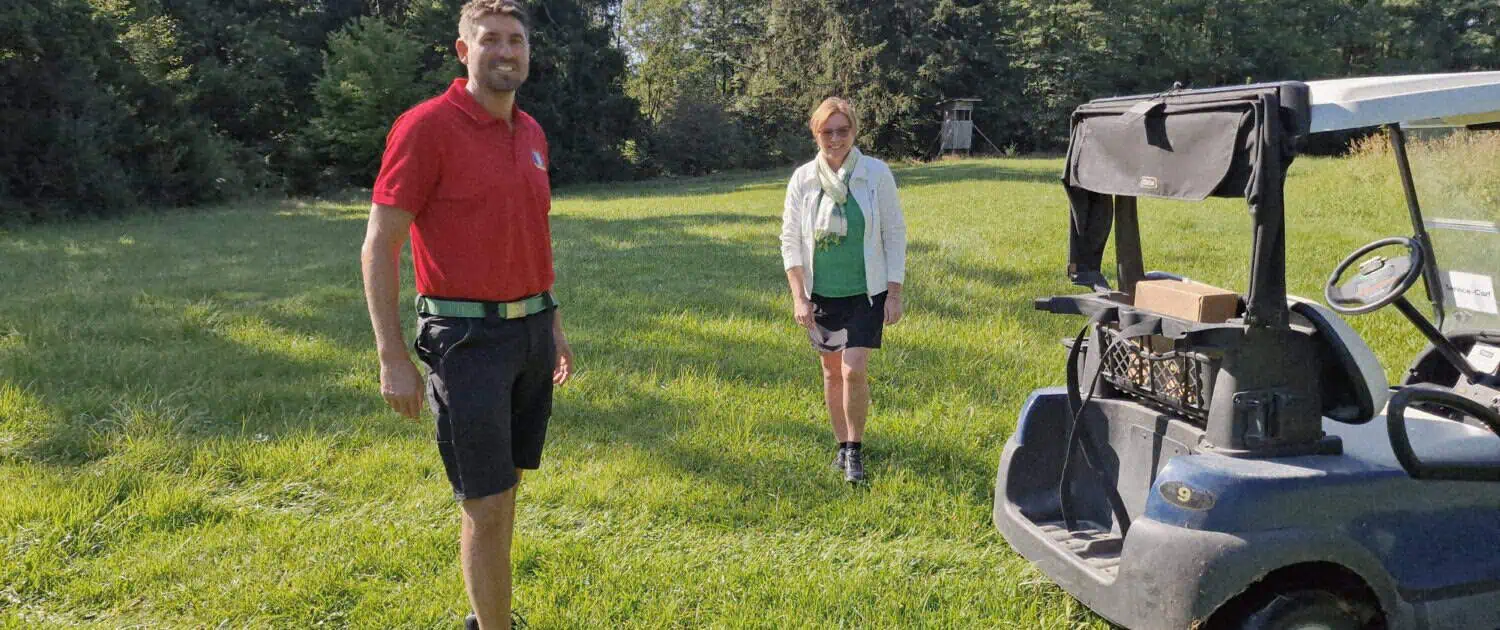“It really was my dream to be a farmer.” As Christian Wörrle says this, he looks out over the panorama of the Bavarian Alps from the Iffeldorf golf course. He has been head greenkeeper here since 2010 – a new dream job in his opinion. 800 kilometers further north, Carolin Lessau is standing on a tee at the 27-hole Gut Glinde course in the greater Hamburg area and talking about the plans for next year. “We’re going to make another major investment and improve the irrigation system,” explains the young managing director. Investments are important to her and her father Jens Lessau, owner of the course, in order to further increase its attractiveness for members and new golfers.
From agriculture to the golf industry
Carolin Lessau and Christian Wörrle don’t know each other. And yet the two have a lot in common. Like Wörrle, Lessau comes from a family that has always farmed. Like Wörrle, her father decided one day to convert just over 100 hectares of farmland into a golf course. Wörrle and Lessau know the farmers’ approach to golf; they know what golfers expect from the quality of the land – and even before their careers in golf, they were always involved in nature, assessing water quality and soil protection.
INSERT_STEADY_NEWSLETTER_SIGNUP_HERE
A golf course tour with Wörrle and Lessau is also interesting because agriculture and the golf industry are often pitted against each other in the public debate. Agriculture is portrayed as a monoculture, with high nitrate and pesticide consumption. On the other hand, golfers are criticized for the high land consumption for a few players and the water consumption for a sports area.
What is lost in the discussion is the fact that many operators of golf courses or head greenkeepers on German golf courses come from an agricultural background, have either leased their land or use it themselves for a golf course. They still have a vested interest in ensuring that the soil and trees remain healthy and the wildlife is preserved.
At the Iffeldorf golf course, Wörrle and course manager Bärbel Schmidbauer can easily document this approach. With the gold award from the DGV Quality Management Program Golf and Nature and the award from the Bavarian Flowering Pact, Iffeldorf is one of the golf courses that stand for great commitment to the topic of ecology within the Bavarian Golf Association.
“We started to develop a new strategy in 2014,” says the head greenkeeper, recalling the beginnings of this approach. Together with a landscape architecture firm, a special maintenance plan was developed for the large hard rough areas. Mulching has long since been discontinued and the meadow areas are even mowed with the company’s own bar mower, which is by no means standard in Germany. Wörrle uses the hay on his own part-time farm. Farming and golf course operations complement each other perfectly.
At GC Gut Glinde, the approach is similar in some respects. Lessau’s brother Philipp, also a trained farmer, has also trained as a greenkeeper and is in charge of course maintenance. The expert handling of the numerous tall trees on the course is guaranteed by the managing director’s partner, a forester. Gut Glinde is not subject to any regulations when it comes to mowing the roughs, “but we always mow so that the young animals are out of the areas anyway, as we do the same on the agricultural land,” Lessau sums up.
Both golf courses have clearly benefited from the extensive knowledge of soil, plants and water from agriculture. The farmers themselves have found new economic footholds with the golf courses. In Iffeldorf, the golf course directly overlooks the meadows where a few cows graze. In Gut Glinde, the fields border directly on the golfers’ fairways. Anyone who wants to explore the question of the compatibility of agriculture and golf will find two positive examples here. It’s a win-win situation for all sides.









